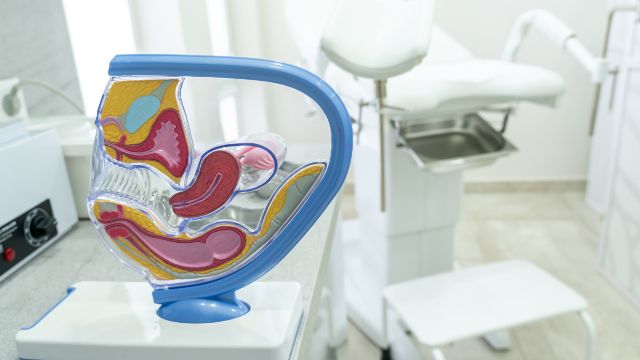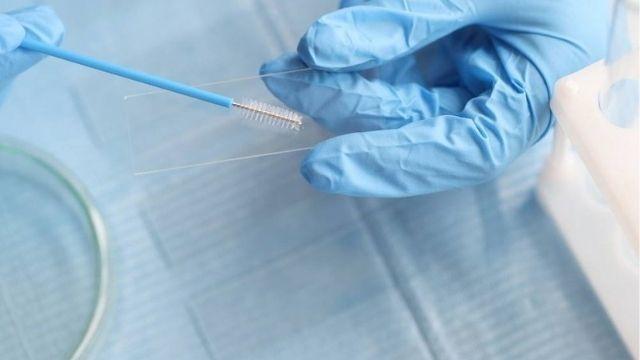Urinary Incontinence

Overview
Urinary incontinence is a condition in which there is inability to control one’s bladder. This problem can arise after passing through certain life events like childbirth or menopause, but is frequent among the elderly and women. This condition can we very humiliating and have a great impact on your social and mental wellbeing. That is why it is crucial to get a treatment on time.
Apart from childbirth and menopause, other possible causes include urinary tract infections (UTIs), pelvic floor problems, and an enlarged prostate in men. Please keep reading to know more about urinary incontinence, its causes, symptoms, and treatments.
Everything You Need to Know About Urinary Incontinence
Urinary Incontinence | Symptoms | Causes | Treatment | Medications | Exercises and Equipment | Pessaries | Surgery | Conclusion
What is Urinary Incontinence?
Urinary Incontinence is a daily-life issue that many individuals are affected by. Patients with incontinence may have problems with bladder control and leakage. As a result, this leakage might negatively influence their life.
To understand urinary incontinence, let’s understand some basics. The kidneys, ureters, bladder, and urethra make up your urinary system. These organs perform various tasks and together clean waste from your body. Having a well-functioning system ensures that you have enough time to use the restroom before peeing and there is no urine leakage.
However, urinary incontinence may occur if one of these components cannot function properly. It might happen any time for various reasons.
Sub Treatments For Gynecology
We are one of the Best IVF Clinic in Delhi NCR!
51.8K
Subscribers
4.6 (383 reviews)
4.5 (409 reviews)
3.5 (254 reviews)

5 Out Of 5
Symptoms
Urine leaking is the most common sign of urinary incontinence. There is a wide range of frequencies in this leakage. It could be a soak or a little squirt. Urge incontinence may lead to leaks during sleep.
Causes
Temporary or short-term incontinence causes include:
- Urinary tract infections (UTIs): Urinary tract infections (infections of the urethra, ureters, bladder, and kidneys) may lead to discomfort and an increased urge to urinate. The need to urinate often is typically eliminated after treatment. Urine leakage is likely to be caused by a urinary tract infection if it is accompanied by:
- Discoloration of your urine that is pink, crimson, or dark
- The smell of urination
- Back or abdominal discomfort
- Urinating too often
If you experience such symptoms, consult our experts immediately.
- Pregnancy: During pregnancy, the uterus exerts more pressure on the bladder, which may cause urinary incontinence. After giving birth, incontinence is no longer an issue for most women who had it while pregnant.
- Medications: Certain drugs, such as diuretics and antidepressants, might cause incontinence as a side effect.
- Constipation: Chronic constipation (a firm, dry stool) may cause bladder control problems.
Chronic or long-term causes of incontinence include:
- Pelvic floor disorders: With pelvic floor muscle dysfunction, organs such as the bladder may be affected, including the ability to urinate.
- Diabetes: Because of diabetes, the amount of urine produced by the body is increased. The increased volume of pee might lead to leakage problems. The bladder may also be affected by peripheral neuropathy (damage or dysfunction of nerves).
- Menopause: Menopause is another phase in women’s bodies when hormone levels fluctuate fast. Their pelvic floor muscles get weaker as they become older.
- Multiple sclerosis (MS): Your bladder may get irritated, resulting in leaks if you have multiple sclerosis.
- Enlarged prostate: Several problems with bladder control may arise when the prostate becomes bigger than it should. BPH, or benign prostatic hyperplasia, is another name for this disorder.
Treatment
When developing a treatment plan for your incontinence, your healthcare professional will consider a wide range of variables. It’s important to think about the sort of incontinence you have and how it affects your daily life.
Medications
Urge incontinence may be treated with a variety of drugs. Tolterodine and oxybutynin are the most regularly prescribed medications.
Moreover, antibiotics are given to women who have a UTI. Infection-caused incontinence is eliminated when the infection is cured.
Estrogen deficiency may induce atrophic vaginitis in certain post-menopausal women. Using vaginal oestrogen creams or pills may be beneficial for women. However, in women who do not suffer from atrophic vaginitis, oestrogen does not aid with urine incontinence.
Pelvic Muscle Strengthening Exercises and Equipment
Your doctor may recommend Kegel exercises and Cone-shaped weights. Before beginning pelvic muscle workouts, insert one of these cones into your vagina. It’s a great way to get the most out of Kegel exercises.
Pessaries
The uterus may prolapse into the vagina, bending the urethra and causing urine leaks. A pessary may be useful in certain situations. A pessary is a rubber ring that acts as a stabiliser for your uterus and prevents it from falling out of place. An OB-GYN may place it into a patient’s vagina that you have to wear at all times.
Surgery
A loss of support at the bladder neck is the most prevalent cause of stress incontinence in women. This condition may be treated surgically. When other therapies have failed, this option is often explored.
In this procedure, a sling of fibrous tissue or loops of suture material is placed around the urethra (bladder draining canal). This ensures that urinary tract does not fall or move out of place.
The surgery can be performed through a small cut above the pubic bone or vagina. A needle-shaped device may be utilised in various instances. The tool is introduced via the skin above the pubic bone or the front wall of the vagina after the pain-killing drug has been administered.
Conclusion
It might be awkward to discuss your restroom habits with your doctor. The good news is that your healthcare professional can assist you in determining the root cause of your bladder control problem and providing you with treatment options.
You don’t have to handle everything on your own. Make an appointment with our urinary incontinence experts to discuss the best treatment options.
Patient Testimonials
It’s always the word of mouth that’s the best advice
Published On: 3 Dec 2018
London to Gunjan IVF: Mrs. Pragya's journey of parenthood |Treated for pregnancy care | Gunjan IVF
Published On: 7 Oct 2018
We are pregnant!! | Pregnancy after Fibroid Removal Treatment (Myomectomy)| Gunjan IVF World

Erica Benn
It was such a nice experience with Dr. Gunjan and how she tackle our case. I must recommend this clinic as one of the best IVF clinic in Delhi-NCR. Thanks to Dr. Gunjan to give me my motherhood.

Nitesh Kumar Thakur
Gunjan IVF World in Indirapuram, Ghaziabad is the best hospital for surrogacy and ivf services in Delhi-NCR. Dr. Gunjan Gupta is founder and director of Gunjan IVF World. Gunjan IVF is the best ivf center in Indirapuram , Ghaziabad. Treatments at affordable prices.

Akansh Garg
Dr gunjan gupta is one of best gyne in delhi ncr especially in ghaziabad she explains each n everything very clearly to avoid any confusion. staff is very supportive n helpful.

Manisha Pathak
Went for treatment at various places in Delhi since 2012. Then came to know about Gunjan IVF. Started treatment in October 2020. The treatment is going on and we are quite hopeful. Gunjan ma'am is a very good doctor who treated me well and the staff are also very good and helpful.

Erica Benn
It was such a nice experience with Dr. Gunjan and how she tackle our case. I must recommend this clinic as one of the best IVF clinic in Delhi-NCR. Thanks to Dr. Gunjan to give me my motherhood.

Nitesh Kumar Thakur
Gunjan IVF World in Indirapuram, Ghaziabad is the best hospital for surrogacy and ivf services in Delhi-NCR. Dr. Gunjan Gupta is founder and director of Gunjan IVF World. Gunjan IVF is the best ivf center in Indirapuram , Ghaziabad. Treatments at affordable prices.

Akansh Garg
Dr gunjan gupta is one of best gyne in delhi ncr especially in ghaziabad she explains each n everything very clearly to avoid any confusion. staff is very supportive n helpful.

Manisha Pathak
Went for treatment at various places in Delhi since 2012. Then came to know about Gunjan IVF. Started treatment in October 2020. The treatment is going on and we are quite hopeful. Gunjan ma'am is a very good doctor who treated me well and the staff are also very good and helpful.
Our Expert Team
Dr. Gunjan Gupta Govil
Founder & Director
Founder, Director & Gynaecologist with specialization in IVF, Infertility & Laparoscopy of 20+ years of experience.
(20+ years of experience)

Dr. Pradyot Kumar
Founder, CEO and a specialized Neurosurgeon who is an expert in complex Brain and Spine surgeries.
(25+ years of experience)

Mr. Gaurav Singhai
COO and an entrepreneur who co-founded Gujan IVF world along with Dr Gunjan and Dr Pradyot.
(5+ years of experience)

Paritosh Sarkar
Embryologist
He is a highly experienced and successful Embryologist with more than 10 years of experience in IVF.
(10+ years of experience)
Patient Guide
Along with treating our patients, we also guide them with the help of our educational blogs and videos.
Educational Blogs

Why do blastocyst not implant?
The reasons for an unsuccessful implantation are very uncommon and rare as well. Blastocyst provides a greater chance of becoming pregnant therefore the procedure is handled properly as well.

What happens after blastocyst transfer?
Before jumping to the immediate question first let’s have a small brief of what is blastocyst transfer. Blastocyst transfer is the transfer of embryos that have achieved a higher stage of development.

Can blastocyst fall out?
Maximum patients worry about what they can do or cannot do after an embryo transfer. They have the fear that if they do something wrong, the embryo would not attach or fall out.
Educational Videos

What is TORCH test in infertility and why is it done?
There are numerous tests that are available to infertile couples that are recommended by some doctors, which might help them determine the cause of their infertility. One such test is the TORCH test.

What is Prolactin Hormone?
Prolactin is a hormone produced by the pituitary gland present at the brain’s base. It is best known for its role in lactation, or milk production, in breastfeeding women.However, Prolactin also plays other important roles in both men and women, such as regulating the immune system, stimulating the growth of new blood vessels, and influencing behaviour and reproductive function. In this blog, we will explore what Prolactin is, how it works, and what happens when there are imbalances in prolactin levels.

Frequently Asked Questions about Low AMH
Primordial and Preantral follicles produce AMH. So the AMH level indicates the number of eggs or egg reserves you have in your ovary. Putting simply, if your AMH level is low, then the number of eggs in your ovary is less.
Frequently Asked Questions
Does testicular temperature have an impact on male fertility
IVF specialists of the best IVF centre in Ghaziabad – Gunjan IVF World share an informative blog on one of the most ignored factors of male infertility. It is an alarming fact to...
Is male menopause a myth or reality ?
IVF specialists of the best IVF centre in Ghaziabad – Gunjan IVF World debunk the myths about male menopause through this informative blog Menopause as a term is extremely common...
Can smoking cause fertility problems in men?
IVF specialists of the best IVF centre in Ghaziabad – Gunjan IVF World share valuable insights on how smoking leads to infertility in men. Becoming parents is one of the greatest...














